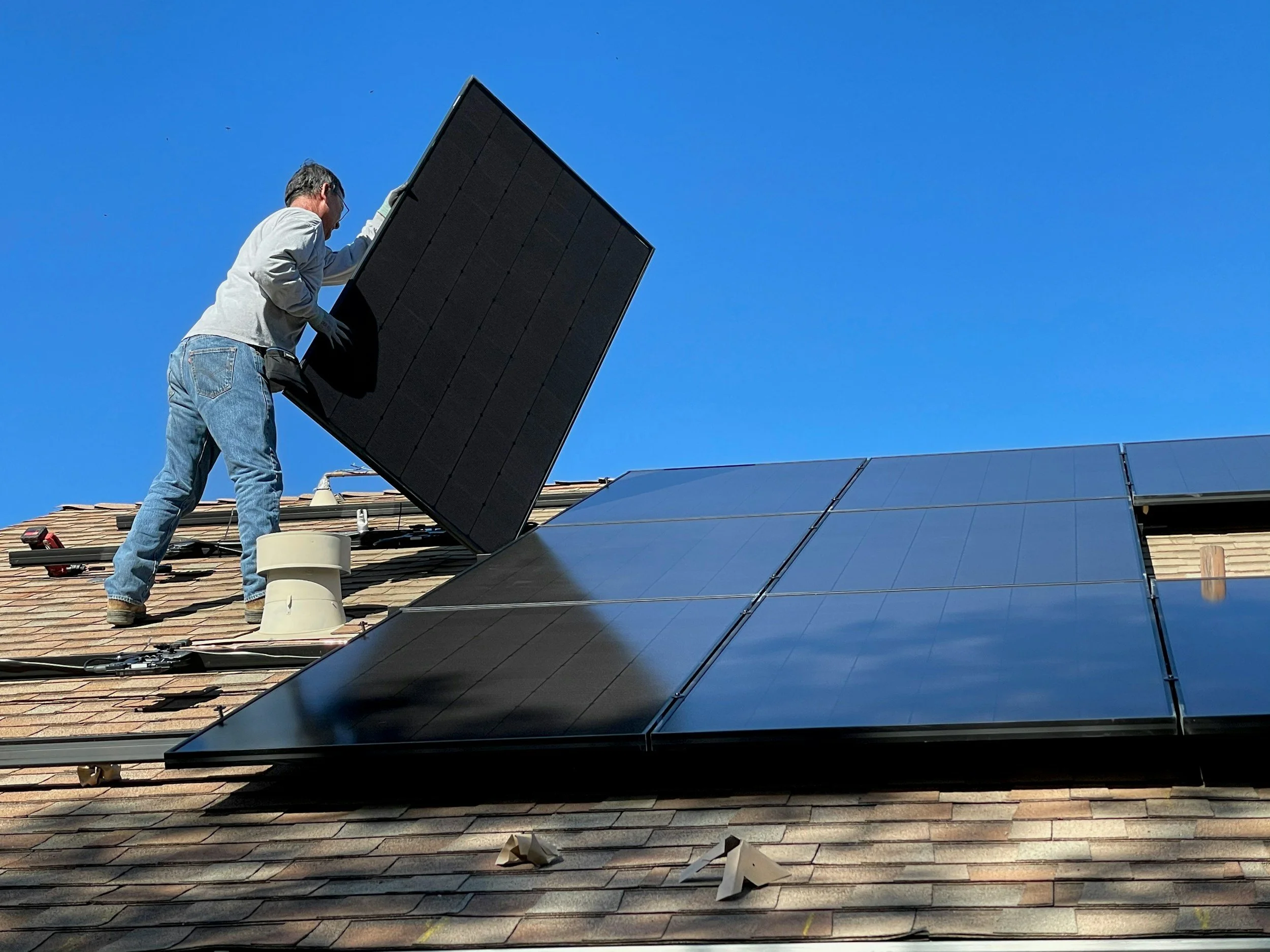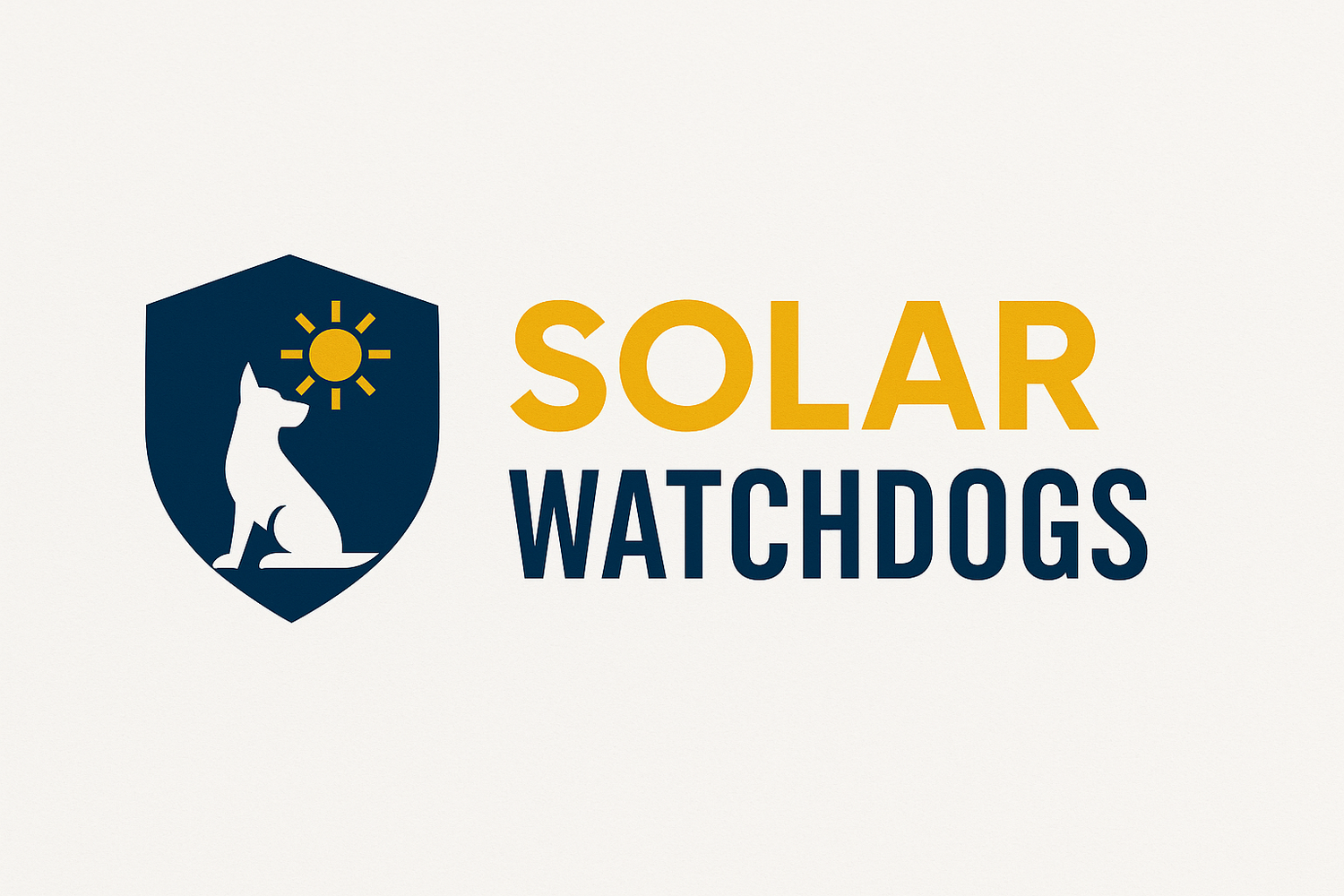
feel good about going solar
THE BOTTOM LINE
You can save serious money and become a self-reliant energy consumer with home solar and batteries. Unfortunately, many business will show you projected savings that are simply not accurate in order to close a sale. Homeowners are put in terrible financial situations everyday with residential solar contracts. Solar is awesome, but the industry has been tarnished by shady sales practices and misinformation. We started Solar Watchdogs because we believe people need an unbiased source of truth and guidance when going solar.
why would they mislead you?
Solar systems are expensive. Sales commissions can be very high for the people who sell them to homeowners. Banks, lenders, and financial products tied to the solar industry can only survive if people continue to finance systems. And there is very little regulation or oversight of the solar industry. If a deal will be lost because the math doesn’t work out for the homeowner, the industry rewards fudging the math. There are levels of deception that range from slight overoptimism to downright lies. Of course, there are also honest businesses out there doing the right thing, but it is increasingly difficult to see who is good and who is bad. Ask yourself this: do the people selling me solar have any reason to tell me it’s a better deal than it actually is?
Solar savings is complicated. Another reason you get bad information is because people do not understand or take the time to deal with all of the factors at play: different utility rate structures, different load profiles in different homes, the actual expected long-term performance of solar equipment, and more. Our assumption is that many solar companies realize that by formulating a quote using all of the data and math necessary to give an even somewhat accurate result they would be working themselves out of a sale - the fact is, even on sunny, south-facing roofs, solar is not always a good investment.
How can you protect yourself?
You can get educated about the economics and functionality of solar systems so that you don’t have to rely on a solar salesperson to explain the complexities of solar. If you know what to look out for, you are more likely to make a good decision. The problem is that so much of the online educational material comes from the solar industry itself and is not objective.
You can read the fine print (all of it) in any solar proposal or financing contract you are presented with. If you aren’t willing to read and understand every word in a contract, then you should not sign.
You can look at company reviews from real customers in places that can’t be easily faked or paid off. Look for real facebook profiles or reddit posts.
You can also seek out an unbiased, third party source with industry expertise to help you. If you are friends with an electrical engineer, a lawyer, or a financial analyst, they could probably help. Other options that seem good at first glance are probably not - most of the solar calculators that predict how much money you might save by going solar, review websites, and even online businesses that claim to “vet” installers and provide much needed info for homeowners are actually just part of the problem: they take any info you give them about yourself and sell it to installers so that those installers can then attempt to sell you solar. In short, there are virtually zero unbiased, consumer friendly businesses in the solar industry. That’s where we come in…
how can we protect you?
We can create a custom report for you that gives you all the information you need to decide if solar is the right choice for your home. We can also review proposals you’ve been given and assess their claims for accuracy or deception. We can be transparent about the assumptions we make, and we can even change them if you like. The reason we can do this is because we get paid when you buy our report, not when you go solar and not when a solar company contacts you.
